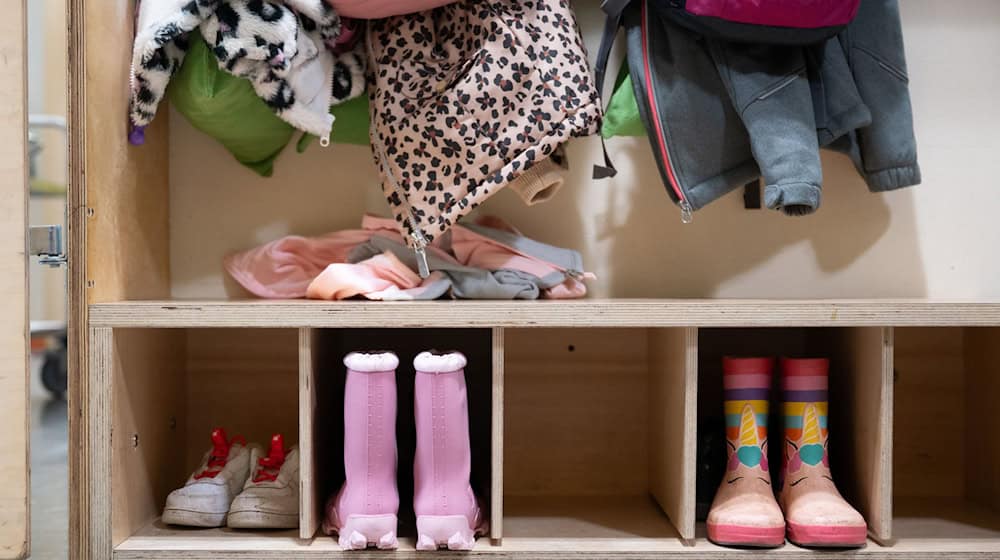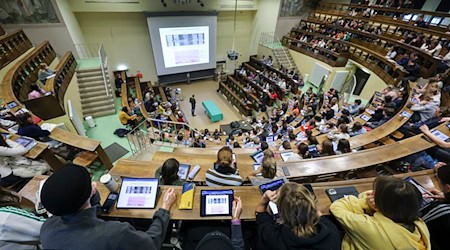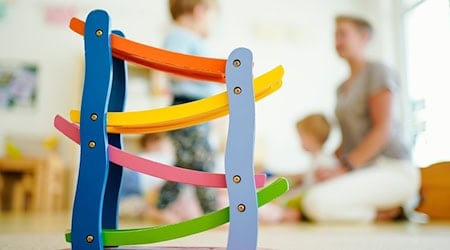No one is too small for big ideas. The city of Dresden wants to revolutionize early childhood language support and can point to initial successes with its "Sprachräume bilden" project. Girls and boys receive 45 minutes of targeted support in small groups of six to eight children three times a week for a year and a half before they start school - in a playful and familiar environment. "Suddenly, the relative silence at the lunch table turns into non-stop chatter from children who have never said anything before," said one teacher, describing her experience.
Nine facilities in three districts of Dresden, where a particularly large number of families with foreign roots live, are currently taking part: Prohlis, Gorbitz and Johannstadt. In some daycare centers, up to 80 percent of the children come from other countries. It is not uncommon for there to be an almost Babylonian confusion of languages. "Children then talk to each other in their mother tongue and groups form," says Sabine Bibas, Head of the Office for Child Daycare, explaining the problem. They then often lack the motivation to learn German.
Education mayor Donhauser sees every euro well invested
With a view to later school life, this is a fatal problem. Experts agree that the earlier children learn the German language, the better they will be able to meet requirements at school later on. The saying "What a child doesn't learn, a child never learns" could therefore also be the motto for "creating language spaces". "Every euro invested here is a euro very well spent," said Education Mayor Jan Donhauser. Dresden was inspired by a project from Bavaria and developed it further. Now it could become an export hit itself.
Vocabulary increases much faster
Since the language rooms began two years ago, experience has shown that the girls and boys are losing their fear of speaking. Their vocabulary increases significantly faster and they develop a strong sense of self-confidence, according to one finding. Children who were involved in the project got used to school more quickly and feel visibly more comfortable there, according to another. The language rooms are by no means just for children from immigrant families. Many native girls and boys also need to catch up on their language skills.
Children's language deficits are on the rise
For years now, it has been apparent throughout Germany that children's abnormalities and deficits are increasing, particularly in terms of language, reported Sabine Grohmann, who is responsible for strategic management in child daycare in Dresden. "The question is: Are we just taking note of this, or are we thinking about redirecting and shaping it?" Impulses from everyday daycare operations would not be enough for some children. In a small group setting, they could learn the language much better under the guidance of educational professionals.
According to Bibas, it's about using a window of opportunity. "Childhood is not long." If children arrive at elementary school with little or no knowledge of the language, failure is already inevitable. It is therefore important to use the time before school.
Bibas and Grohmann are now hoping that the city of Dresden will continue to fund the project adequately in the coming years. The language rooms are part of an action program entitled "Growing up with social responsibility", which has been running since 2008 and for which Dresden spends ten million euros a year. Daycare centers in socially deprived areas of the city receive more resources to better support the little ones. Dresden has also already set a precedent with its action program.
Copyright 2025, dpa (www.dpa.de). All rights reserved










